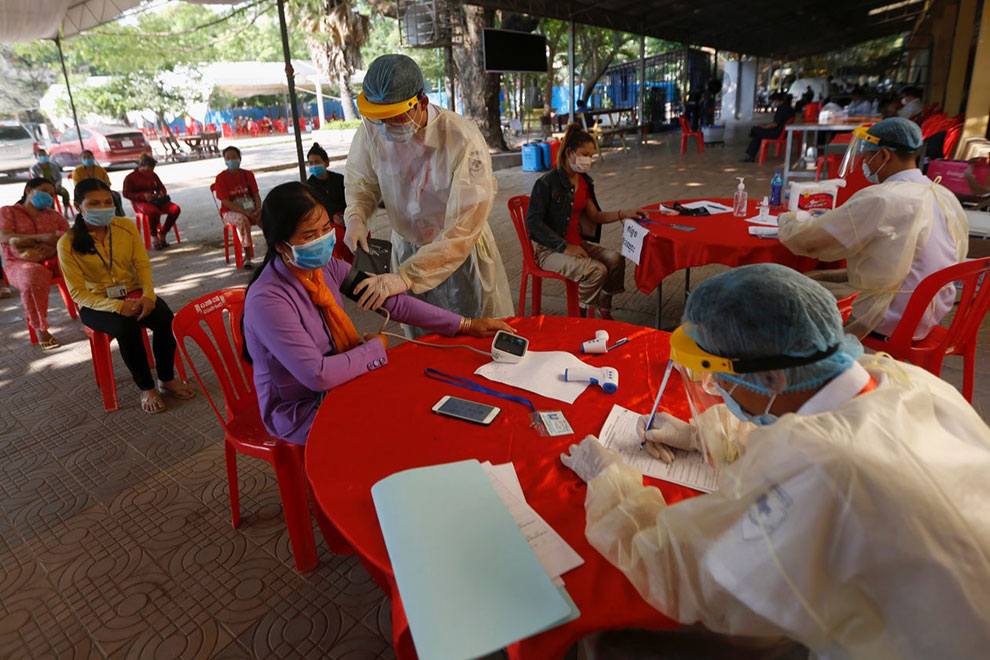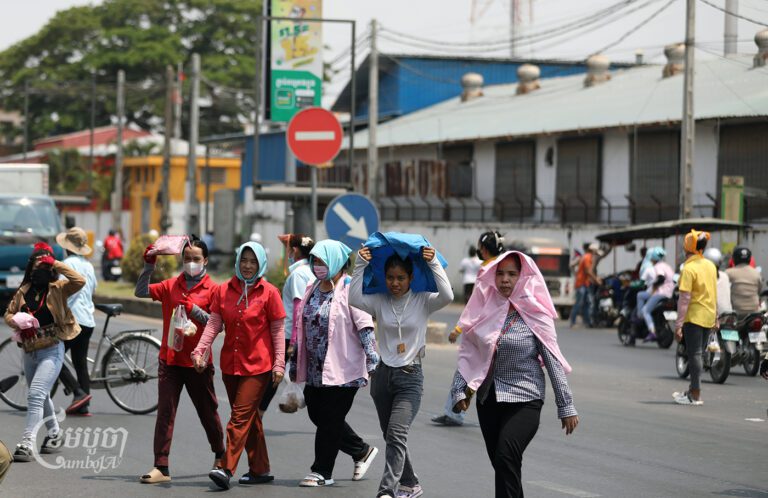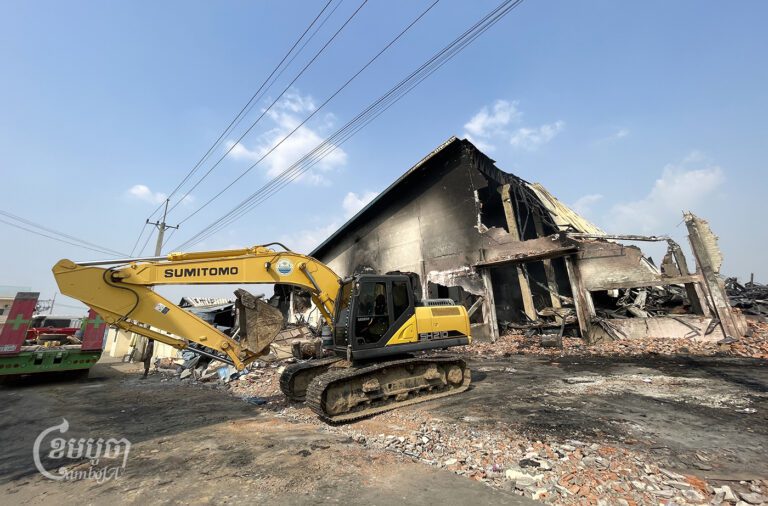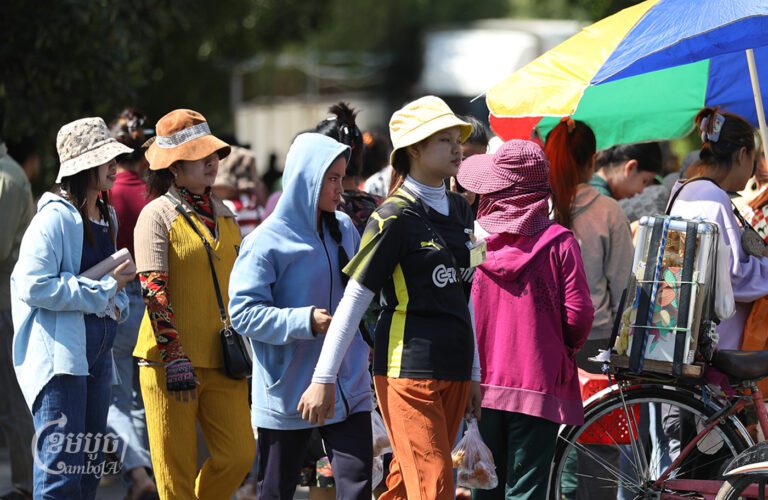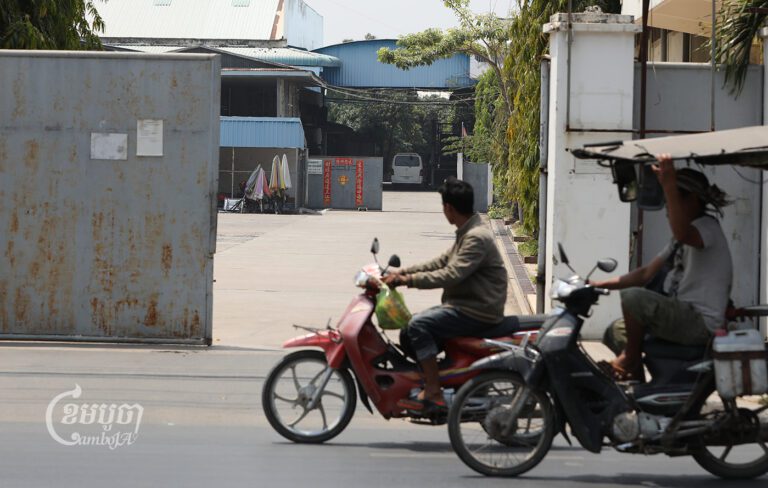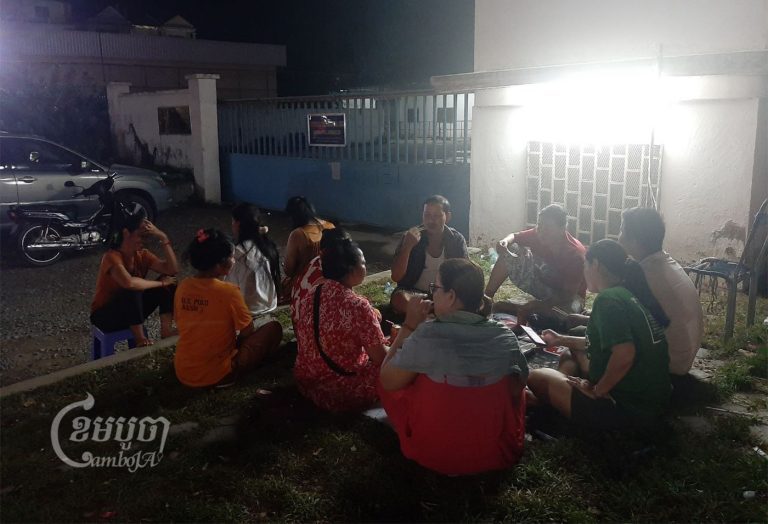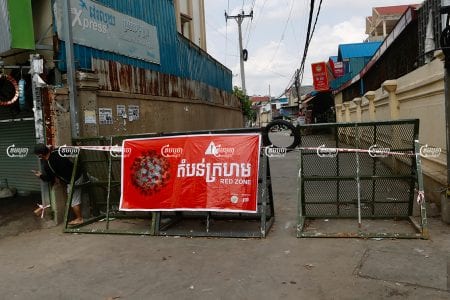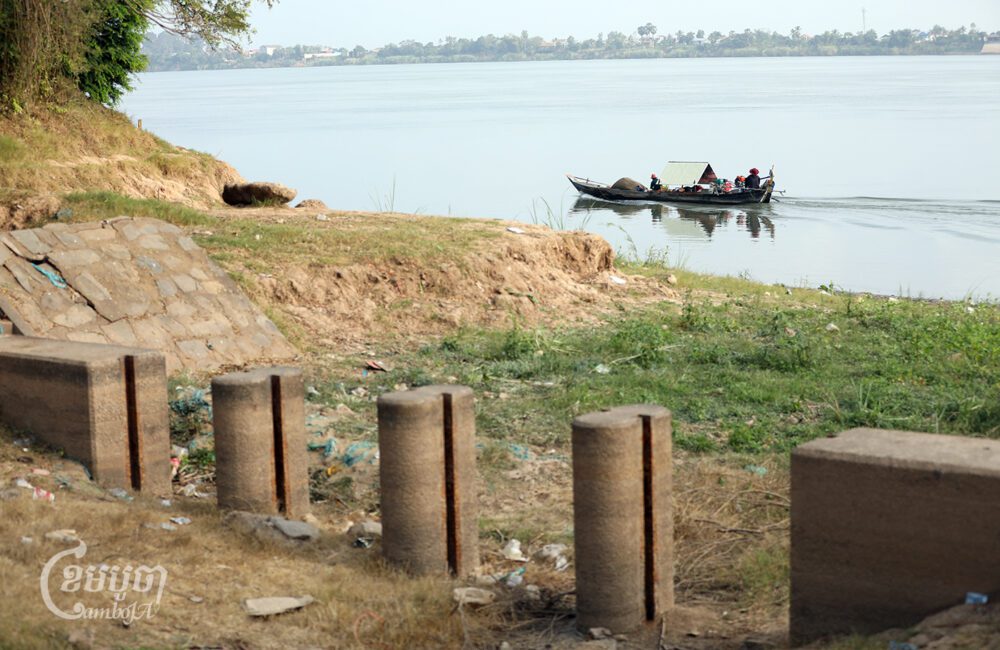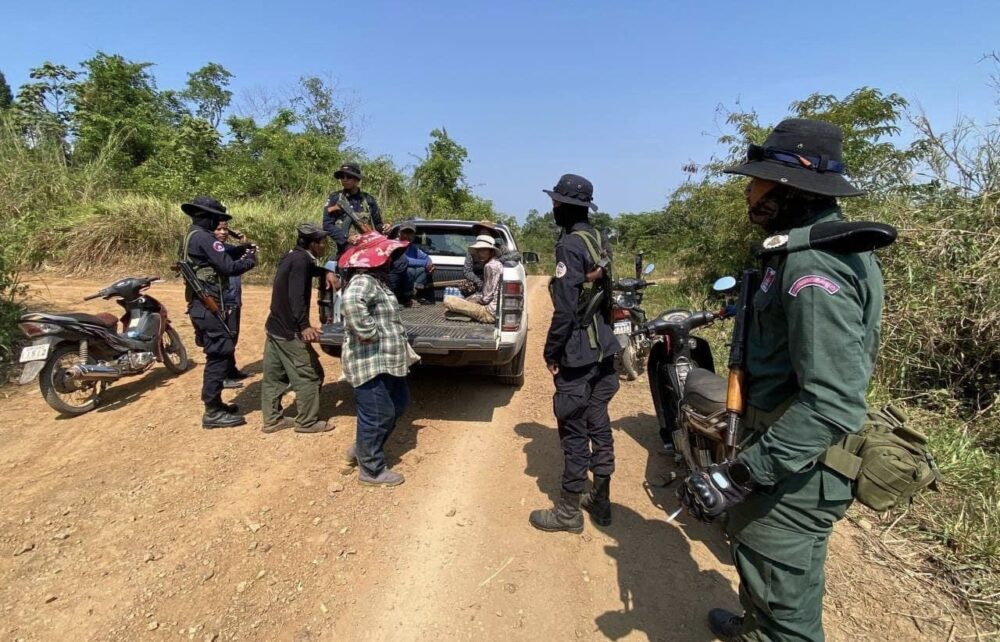Almost 30,000 garment workers who failed to show up to work during last week’s cancelled Khmer New Year holiday will be forced into quarantine or self-isolation for 14 days amid fears of coronavirus, a Labor Ministry official said on Monday.
Health officials on Monday morning began screening workers who ignored the government’s cancellation of Khmer New Year and chose not to show up to their factories last week, instead returning to family homes for celebrations.
A provincial travel ban had been enacted for the week and workers told factories would be required to submit lists of absentees to the government, but Heng Sour, a spokesman for the Labor Ministry, said that many still ignored the orders.
Sour said that an even split of about 15,000 workers in Phnom Penh and 15,000 workers in the provinces were to be kept out of their factories for two weeks after their factories reported them absent from work during the cancelled holiday.
He said the measure was popular with workers who did go to work last week.
“This is the request from the 98 percent of workers who do not agree for the 2 percent of workers to work with them, so the government has found a solution to put the 2 percent of workers into isolation from them,” Sour told reporters while visiting a makeshift coronavirus screening site for workers in Phnom Penh.
The Labor Ministry official said that returning workers who had symptoms of coronavirus would be quarantined in one of three makeshift centers around Phnom Penh while those who had no symptoms would be required to self-isolate at home. Two workers had already been forced into quarantine, he said, after presenting with symptoms. All those quarantined would have food provided.
Any of the returning workers, though, would be welcome in the makeshift quarantines at Phnom Penh’s Chumpouvon high school, Kork Banhchoan secondary school and Russei Keo high school for two weeks, Sour said, and not only the ones with symptoms. Those who self-isolated would not be provided with any food, he noted.
“[It’s] both for any workers who are suspected of having symptoms of Covid-19, and for other workers whose landlords, or the people they work with, do not allow them to stay with them,” he said. “They can stay in these three places.”
Even workers who took official leave from their factories — with Sour putting the number at about 6,000 of the 15,000 workers in Phnom Penh — will be forced to quarantine or self-isolate. However, factories would still pay them for seven days, while the majority who simply skipped work last week will receive no pay.
All schools have been closed until the coronavirus threat abates.
Workers and union leaders in garment factories have called for Cambodia’s government to do more for workers in the factories, too, with many saying that the cramped conditions inside the factories make them ripe for an outbreak.
Some returning workers forced into health screenings on Monday said they, in contrast, believed that the government’s measures being put in place against them were too strong. Many said they had in fact been forced to take holidays over Khmer New Year by factories hit by reduced orders from overseas buyers.
Koeng Chanphally, a 30-year-old worker at Laurelton Diamonds factory at the Phnom Penh Special Economic Zone, said she had ignored the government’s orders and visited her family home in Kompong Cham province’s Srey Santhor district.
But Chanphally said she had remained inside her home the entire time and had only taken the break because her factory made her take leave from April 9 to 20. She said she would not be able to afford to not work for the next two weeks.
“I think that if the factory or the government does not pay me some money while I am isolated for 14 days, I will not have enough money to pay for food or anything during this time, because we will not be working,” Chanphally said. “The factory or the government should provide some money for workers who are isolated.”
Ean Soklin, a 27-year-old worker at the Apple Apparel factory at the Phnom Penh Special Economic Zone said her factory had similarly given her leave for April 8 to 20 and that she was surprised to be forced to take a health screening in the morning.
“I heard the factory will not pay me any salary for 14 days as they are following the Labor Ministry’s measures,” Soklin said, explaining that her situation was unclear. “I would not have enough money to pay for 14 days of isolation, so I ask the government to please help pay some money to me and the other workers.”
A health official at the Phnom Penh Special Economic Zone said he had screened 164 workers and sent them home for isolation after they showed no symptoms.
According to Health Ministry figures, the number of confirmed Covid-19 cases in Cambodia now stands at 122, including 107 cases of full recoveries, with no new infections having been added to the government’s count in more than a week.


